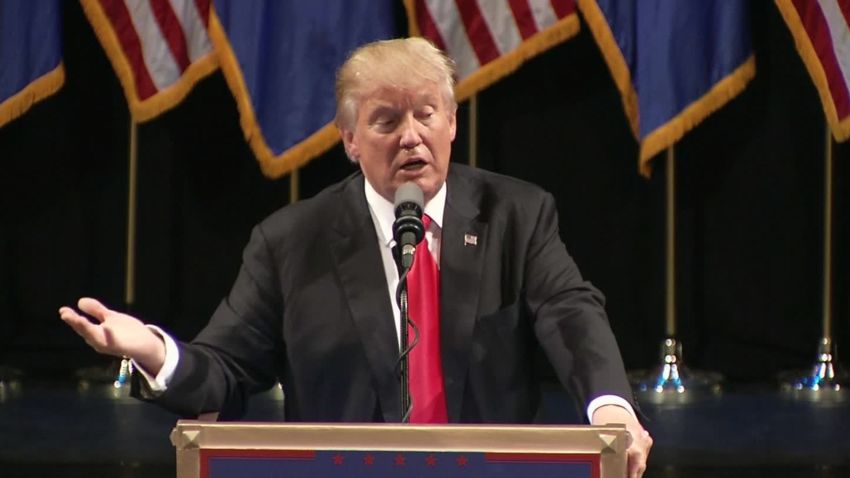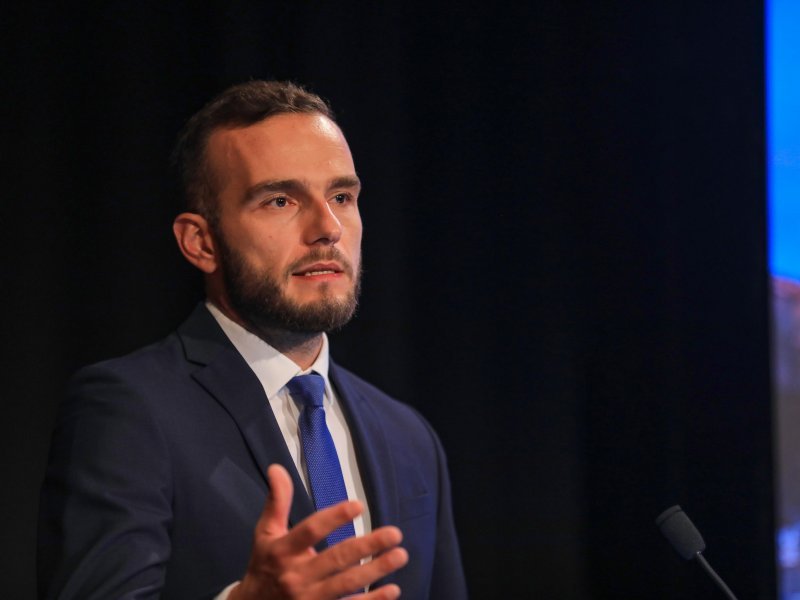Fundraising Intensifies At Top Universities Amidst Trump Administration Challenges

Table of Contents
Increased Competition for Donations
The landscape of philanthropic giving has become increasingly competitive. Top universities are vying for a shrinking pool of potential donors, facing pressure from both peer institutions and other charitable organizations. This heightened competition is fueled by economic uncertainty and shifting philanthropic priorities, with donors becoming more discerning about where they allocate their funds. Wealth management firms are also playing a larger role in advising donors, further complicating the fundraising process.
-
Increased competition amongst universities: With endowments under pressure and tuition increases facing scrutiny, the fight for philanthropic dollars is fiercer than ever.
-
Impact of economic uncertainty: Fluctuations in the stock market and concerns about the economy lead to donors being more cautious with their charitable giving.
-
Shifting philanthropic priorities: Donors are increasingly interested in supporting causes aligned with their values, requiring universities to clearly articulate their missions and demonstrate impact.
-
Strategies for differentiation: To stand out, universities are implementing sophisticated strategies:
- Targeted campaigns: Focusing fundraising efforts on specific demographics or areas of research that resonate with potential donors.
- Personalized outreach: Building strong relationships with individual donors through tailored communication and engagement.
- Showcase of impact: Highlighting the tangible results of past donations and demonstrating the impact of future investments.
For example, Stanford University's successful "Stanford Impact" campaign leveraged personalized outreach and a strong focus on research impact to secure significant donations. Similarly, Harvard University's emphasis on targeted fundraising initiatives related to specific areas of study attracted substantial support from alumni and external donors.
Navigating Political Polarization and Shifting Public Opinion
The political climate has significantly impacted donor attitudes towards higher education. Political polarization creates challenges in securing funding from donors with differing viewpoints, particularly on issues such as affirmative action, free speech, and the role of higher education in society. Maintaining a positive public image and fostering trust among diverse donors has become paramount for universities.
-
Impact of political polarization: Divisive political issues can alienate potential donors and make securing large gifts more challenging.
-
Challenges in securing funding: Universities must carefully navigate sensitive political topics to avoid alienating donors with opposing views.
-
Maintaining donor trust: Transparency, ethical conduct, and clear communication are essential in building and maintaining donor trust.
-
Examples of controversies and mitigation strategies:
- The controversy surrounding certain speakers on college campuses required institutions to implement strategies to manage public perception and protect their reputations.
- Funding cuts proposed by the Trump administration prompted universities to highlight the importance of higher education funding and demonstrate their societal impact. Many institutions launched successful campaigns to counter negative narratives and secure continued support.
Adapting Fundraising Strategies to the New Reality
To thrive in this challenging environment, universities are adapting their fundraising strategies. This includes a shift towards digital fundraising, an increased emphasis on major gifts, innovative alumni engagement initiatives, and an evolving role for development officers.
-
Shift towards digital fundraising: Utilizing online giving platforms, social media campaigns, and digital storytelling to reach a broader audience and streamline the donation process.
-
Increased emphasis on major gifts: Cultivating relationships with high-net-worth individuals and foundations to secure large donations.
-
Innovative alumni engagement: Creating engaging events, online communities, and mentorship programs to foster strong relationships with alumni and encourage their support.
-
Evolving role of development officers: Development officers are taking on more strategic roles, focusing on relationship building, data analysis, and sophisticated fundraising strategies.
-
Examples of successful strategies:
- Many institutions have seen success with crowdfunding campaigns focused on specific projects or student needs.
- Personalized emails and targeted social media advertising have proven effective in increasing online donations.
- Successful alumni engagement programs have fostered a sense of community and significantly increased alumni giving rates.
The Importance of Transparency and Accountability
In this climate of increased scrutiny, transparency and accountability are crucial for maintaining donor confidence. Universities must clearly communicate how funds are used and ensure ethical fundraising practices.
-
Growing importance of transparency: Donors expect clear and concise reporting on how their donations are utilized.
-
Building trust through communication: Open communication regarding the institution's financial health, spending priorities, and the impact of donations helps to build donor confidence.
-
Best practices for ethical fundraising: Adhering to high ethical standards in all fundraising activities ensures donor trust and protects the university's reputation.
-
Examples of transparency and accountability:
- Universities publishing detailed annual reports outlining fundraising activities and the allocation of funds.
- Implementing robust internal controls and auditing processes to ensure accountability and prevent misuse of funds.
Conclusion
The Trump administration's policies have created a complex and competitive landscape for university fundraising, necessitating innovative strategies and a heightened focus on donor relations. Navigating political polarization, economic uncertainty, and shifting public opinion requires institutions to demonstrate transparency, accountability, and a strong commitment to their missions. Understanding the evolving landscape of university fundraising is vital for institutions seeking to secure the resources necessary for continued success. To learn more about effective strategies for navigating these challenges, explore resources dedicated to higher education philanthropy and best practices in university fundraising. Stay informed about the latest trends in university fundraising to ensure your institution's continued success.

Featured Posts
-
 Eu Energy Security Addressing The Russian Gas Spot Market
Apr 24, 2025
Eu Energy Security Addressing The Russian Gas Spot Market
Apr 24, 2025 -
 The Bold And The Beautiful April 3rd Recap Liams Health Crisis Following A Fight With Bill
Apr 24, 2025
The Bold And The Beautiful April 3rd Recap Liams Health Crisis Following A Fight With Bill
Apr 24, 2025 -
 Nba
Apr 24, 2025
Nba
Apr 24, 2025 -
 Tyler Herro Edges Buddy Hield To Win Nba 3 Point Contest
Apr 24, 2025
Tyler Herro Edges Buddy Hield To Win Nba 3 Point Contest
Apr 24, 2025 -
 Nepoznati Film Tarantinov Razlog Za Odbijanje Gledanja Filma S Travoltom
Apr 24, 2025
Nepoznati Film Tarantinov Razlog Za Odbijanje Gledanja Filma S Travoltom
Apr 24, 2025
